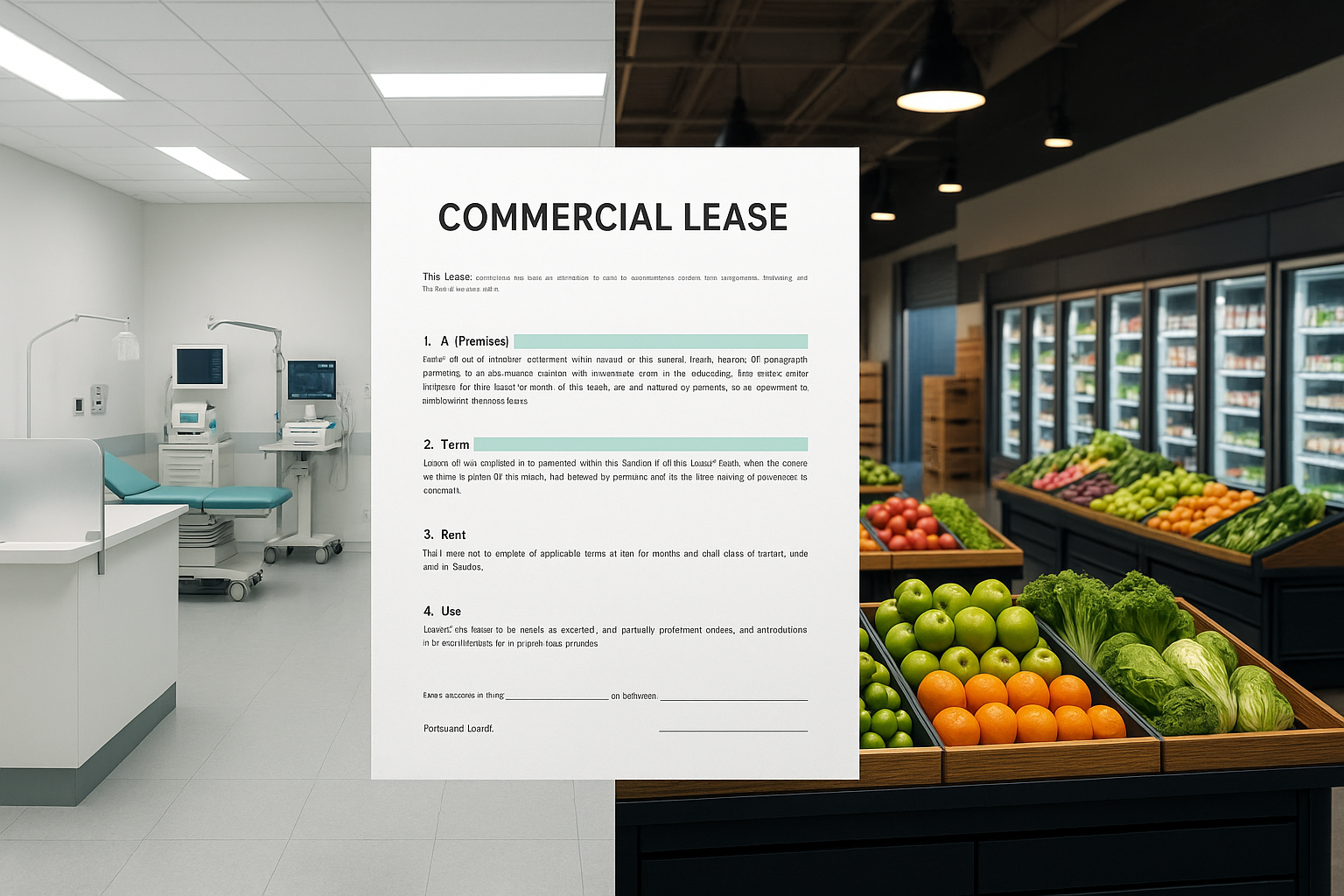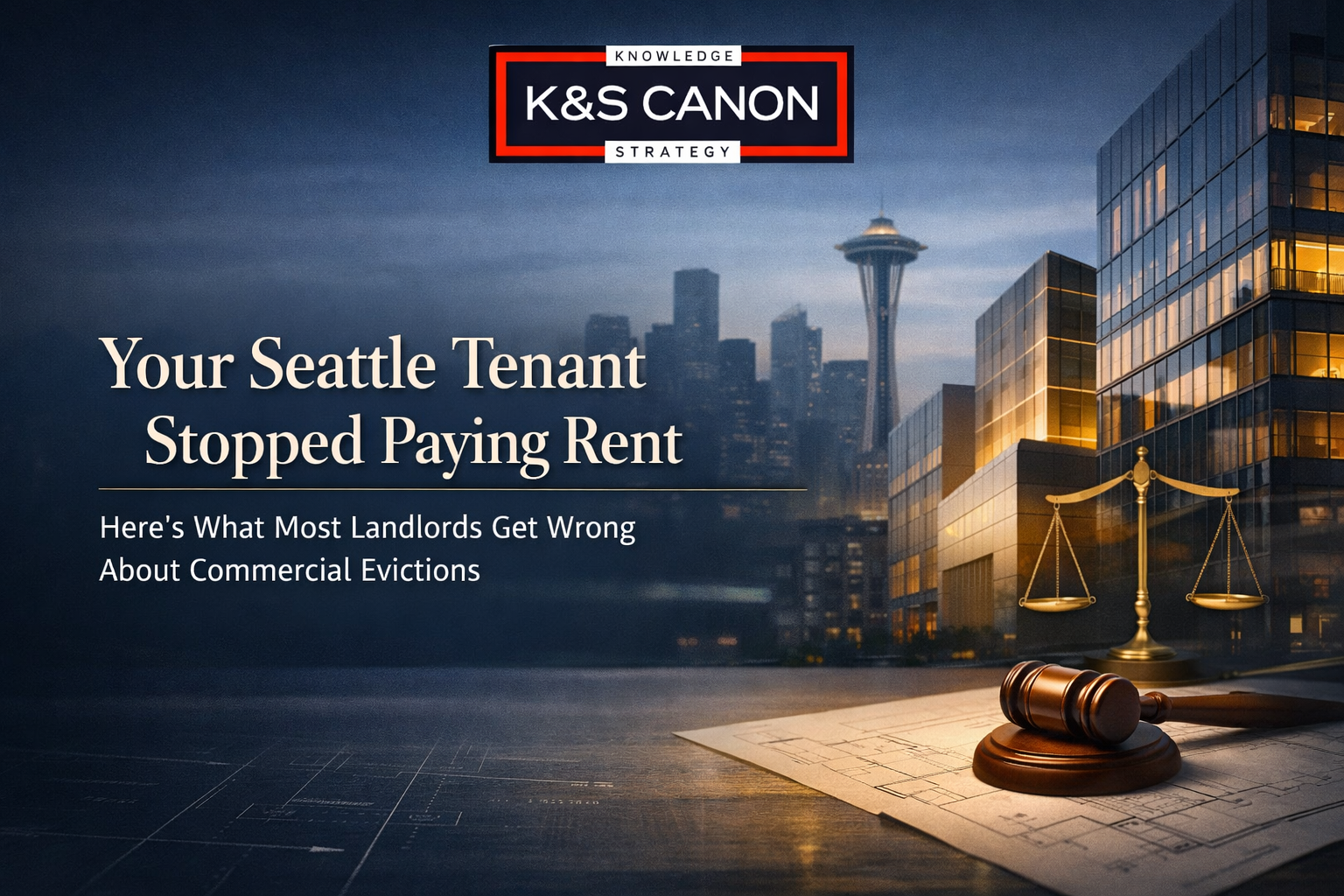Commercial Leasing: Medical Facility and Grocery Store Considerations

Commercial leases for specialized facilities require attention to industry-specific details that can significantly impact business operations. This post examines key considerations for medical facilities and grocery stores when negotiating Washington State lease agreements.
Medical Facility Leasing Strategies
Healthcare providers face unique challenges when leasing commercial space. Their requirements extend beyond typical office considerations to include regulatory compliance and patient care concerns.
Compliance and Patient Privacy
Medical code compliance forms a major cornerstone to any viable healthcare facility lease. Provisions that address ADA requirements, medical waste handling, and healthcare-specific building codes should be explicitly documented.
Patient privacy protocols require physical considerations in the lease. Structural requirements supporting HIPAA compliance, including sound attenuation between treatment rooms, impact both construction costs and ongoing operations.
Healthcare providers typically invest $80-125 per square foot in tenant improvements, making favorable improvement allowances and amortization terms particularly important in medical leases, according to Medical Economics.
Specialized Infrastructure
Medical equipment installation rights deserve careful attention. Provisions for installing and maintaining specialized equipment, including imaging machines, x-ray facilities, and treatment suites, affect both initial buildout and long-term operations.
Biohazard management protocols require clear documentation. Terms outlining handling procedures for medical waste and potentially hazardous materials prevent future disputes and regulatory issues.
Access provisions must accommodate healthcare operations. Many medical facilities require 24/7 access for emergency care and extended-hour operations that typical commercial leases may not address.
Patient Accessibility
Patient parking represents a critical component of medical facility success. Dedicated parking allocations for patients, including handicapped spaces exceeding standard commercial requirements, directly impact patient satisfaction and practice viability.
Building access points should support patients with mobility challenges. Lease provisions regarding entrance configurations, elevator access, and proximity to parking warrant careful negotiation.
Grocery Store Leasing Priorities
Grocery operations present distinct leasing challenges requiring specialized provisions beyond standard retail considerations.
Anchor Tenant Positioning
Grocery stores often serve as anchor tenants because they significant foot traffic for surrounding businesses. This position can be leveraged to secure favorable lease terms, including rent structures and use protections.
Loading and delivery infrastructure requires detailed specifications. Provisions for loading docks, refrigerated delivery areas, and delivery scheduling affect both initial construction costs and ongoing operations.
Technical Requirements
Refrigeration systems require specific lease provisions. Terms regarding installation and maintenance of refrigeration equipment—including roof access for condensers—impact both buildout costs and operational efficiency.
Utility capacity needs particular attention in grocery leases. Provisions regarding electrical and water capacity must accommodate the substantial requirements of modern grocery operations.
Cart storage areas may seem like a minor detail, but it can affect both customer convenience and property appearance. Designated spaces for shopping cart corrals and maintenance should be explicitly documented.
Industry publication Progressive Grocer reports that grocery operators typically review over 40 specific lease provisions unique to their industry when evaluating potential locations.
Washington State Legal Framework
Commercial leases in Washington State operate under specific legal frameworks that differ from residential leases in important ways.
The Washington State Legislature defines commercial real estate as property that is not improved with one single-family residential unit or one multifamily structure with four or fewer residential units. This definition guides how the state regulates commercial leases.
Washington has eliminated notary requirements for commercial leases, streamlining the execution process. This change particularly benefits businesses with remote signatories or those using electronic signature platforms. Nevertheless, a notary remains optional and may be beneficial for recording in the event of mortgage refinancing or property sale.
Seattle ordinances provide additional protections, including limitations on personal guarantees in commercial leases. These local regulations aim to support small businesses by reducing personal financial exposure for the business owner.
Unlike with residential leases, commercial tenant rights in Washington State primarily stem from the lease agreement itself rather than statutory protections. This makes thorough legal review particularly important for any commercial tenant before signing a commercial lease.
Contact K&S Canon for Your Commercial Lease Legal Needs
Attorney guidance when negotiating industry-specific commercial leases can help secure favorable terms aligned with your business requirements. Contact K&S Canon today to discuss how their legal services can support your medical facility or grocery store leasing needs.
Disclaimer: This blog post is for informational purposes only and does not constitute legal advice. Commercial lease regulations may vary by location and change over time. Consult with a qualified attorney for guidance specific to your situation.




